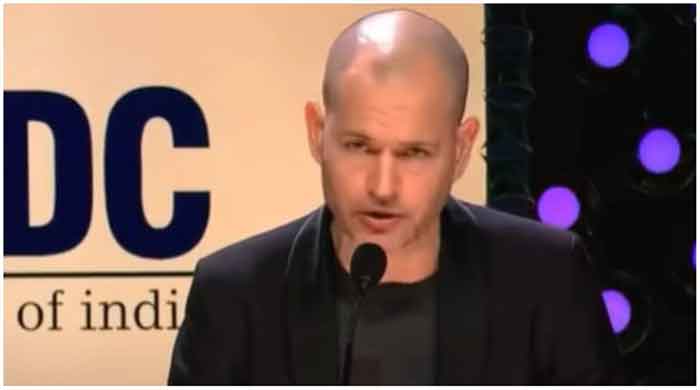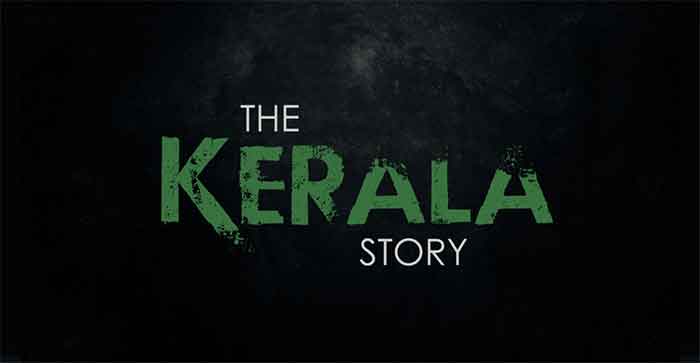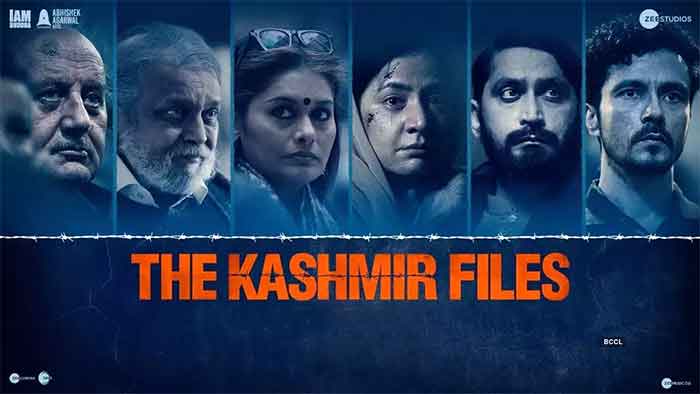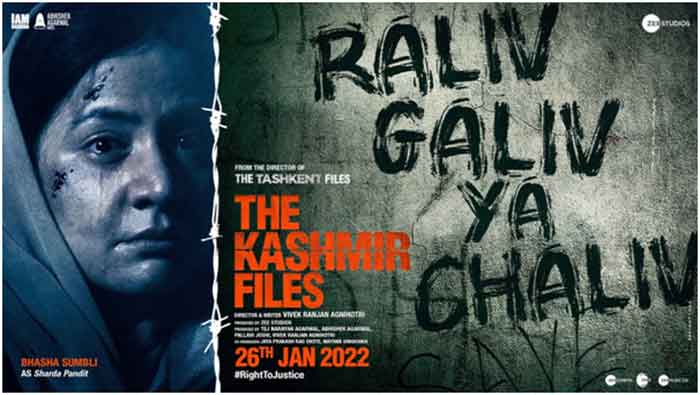
At the 53rd International film festival of India in Goa, in the concluding remarks made by Nadav Lapid, the Israeli filmmaker came down heavily upon The Kashmir Files. He called the film propaganda and vulgar movie which was inappropriate for an artistic competitive film section of such a prestigious Film Festival. Soon after, Israel’s ambassador to India criticised the filmmaker saying that Lapid abused the invitation to the judges’ panel in the worst way. He took to Twitter to criticise Nadav Lapid and wrote ‘he should be ashamed.’ However, Lapid’s remarks stirred a hornet’s nest. Predictably, the right-wing Hindutva elements made all the noise without making an attempt to justify the artistic merit of the film. Later, jury member Jinko Gotoh, and two fellow jurors Pascale Chavance and Javier Angulo Barturen, stated: “the entire jury knew and agreed with what Mr. Lapid said. We stand by his statement.” Sudipto Sen, the only Indian filmmaker on the IFFI International Competition jury claimed that Mr. Lapid made the statement in his personal capacity and he was not a signatory.
Lapid said: I felt totally comfortable sharing these feelings on stage since we felt that this festival can truly accept a critical discussion, which is essential for art and for life.
Before the controversy on The Kashmir Files, virtually nobody in India knew of Nadav Lapid despite him winning numerous awards and honours in prestigious festivals the world over. Lapid’s movies, which are frequently critical of nationalism and Israeli identity, are widely celebrated in art houses and film festivals around the world. A director from a ‘foreign’ country making comments on ‘our’ movie – and that too the movie which was a favourite of the ruling party here- was seen as misusing his position as a guest. Since when have we decided that the jury head should not speak his mind on the quality of films- and that too in an ‘international’ festival?
Keeping aside all the brouhaha that his comments created, it would be pertinent to know more about the very genre of filmmaking that Lapid represents. Two of his latest movies express his mind in a lucid way since both these films are semi-autobiographical in nature. They express the anger of a person or an artist vis-a-visa vis the hostile and meddling state. His movie Synonyms (2019) shows its hero Yoav landing in Paris. Yoav wants to sever all links to Israel. He wants to forget even the Hebrew language. He wants to learn French and be French in every possible way. In the opening scene, Yoav is seen entering an empty flat in Paris. He removes his clothes and goes to take a bath. Once he comes out of the bathroom; he discovers that his backpack is stolen and he is without any clothes. He runs naked; knocks on a few doors; returns to the bathtub shivering with cold – almost resigned to death. He is ultimately rescued by his neighbours Emile -who is a writer and his companion Caroline -an oboe player -who both take him to their flat and help him in every possible way. Yoav buys a pocket-sized dictionary and synonyms flow from him in a constant stream. Guided by Emile and Caroline, he tries to spend his time with other Israeli ex-pats. He shares stories of his past, his militaristic upbringing, and his family torn apart by war. Yoav is unpredictable at any moment. Many of the dialogues in the movie are parablelike including the opening scene. In fact, the movie is full of such images. Why does Yoav want to forget his past even though he faces many uncomfortable situations? Can the pursuit of shedding one’s national identity be so simple? How can he achieve it? We all carry the memories, the local language, the signs, the gestures, the internal psychology, etc. Can we remove the same from our psyche and throw them all in the dustbin? And bereft of all these, what are we left with? All these leave us with a lot of awkwardness, but we all have to face this if we are sensitive enough to ask such questions. Lapid raises these questions through the story of Yoav.
And why does the hero in the movie like to shed his Israeli past in disgust? Nadav states in an interview with the Now Toronto magazine, “The film talks about the collective Israeli soul and the Israeli collective soul is a sick soul. Something in the deepest essence of the Israeli existence is false – is rotten. It’s not just Benjamin Netanyahu – it’s not special to Israel. But, at the same time, I think this Israeli sickness or nature is characterised by young Israeli men muscular, smiling, who don’t raise any questions and don’t have any doubts. They are extremely proud of being Israeli. They have a totally dichotomist vision of existence: Us versus all the others.”
The reasons for the rot and his disgust of it are not clear in the movie but they are obvious to anyone familiar with settler colonialism and the apartheid Israeli state and its discriminatory nature when it comes to Palestinians. And Lapid is frank and outspoken about it.
His latest movie ‘Ahed’s Knee’ (2021) answers this question by the very choice of the topic. The movie shows a director simply known as Y in the preparation for a film about Ahed Tamimi, a real-life Palestinian activist known for a viral video of her slapping an Israeli soldier in 2017. Y wishes to focus, in one scene, on a tweet by an angry Israeli demanding that Tamimi be shot (at least in the knee). While casting the main role, Y travels to the Arava region – a secluded landscape of rock and dust – to attend a screening of one of his films, organised by Yahalom, one of his local admirers, who works for the Israeli Department of Libraries.
Before Y can screen one of his movies in a public library in an Arava desert town, he is told he must sign a document from Israel’s Ministry of Culture. The agreement states that, during his visit, he will only discuss with his audience a list of approved topics, including ‘Israeli history,’ ‘the Holocaust,’ ‘family,’ ‘love’ and ‘comrades in arms’. And there is one more list of unapproved topics like ‘Palestinians,’ ‘the occupation’ and so on.
Nadav is always uncomfortable about the state meddling in the arena of artist. But it is not an abstract state, but the belligerent ‘here and now’ Jewish state of Israel and its discriminatory character and the consequent crises. About Ahed’s Knee, he says: In general, in my movies there are hardly any Palestinians. I think it’s because I’m totally fascinated by this research into Israel’s soul. I feel that the Palestinians are already present inside the Israeli soul. When Israelis look in the mirror, they also see the reflections of Palestinians. The feelings of fear, anxiety, hate, guilt, otherness. It’s the shadow that accompanies Israelis whenever they go.
The common thread running through both his semi-autobiographical films is Lapid’s search for a collective Israeli soul. And the Palestinians are not excluded from this soul.
Nadav Lapid is a ferocious and brave artist seething with anger like his hero Yoav in his movie Synonyms. He is not afraid to talk his mind openly on platforms like the ‘International’ Film Festival of India. He does not hide his love-hate relationship with Israel and calls the Israeli collective soul a sick soul. In an interview after the storm created due to his remarks at IFFI, he says: In countries that are increasingly losing the ability to speak their mind or speak the truth, someone needs to speak up.
His message is clear enough to us as well as to the Israelis.
Ashok Rajwade is a retired engineer













































